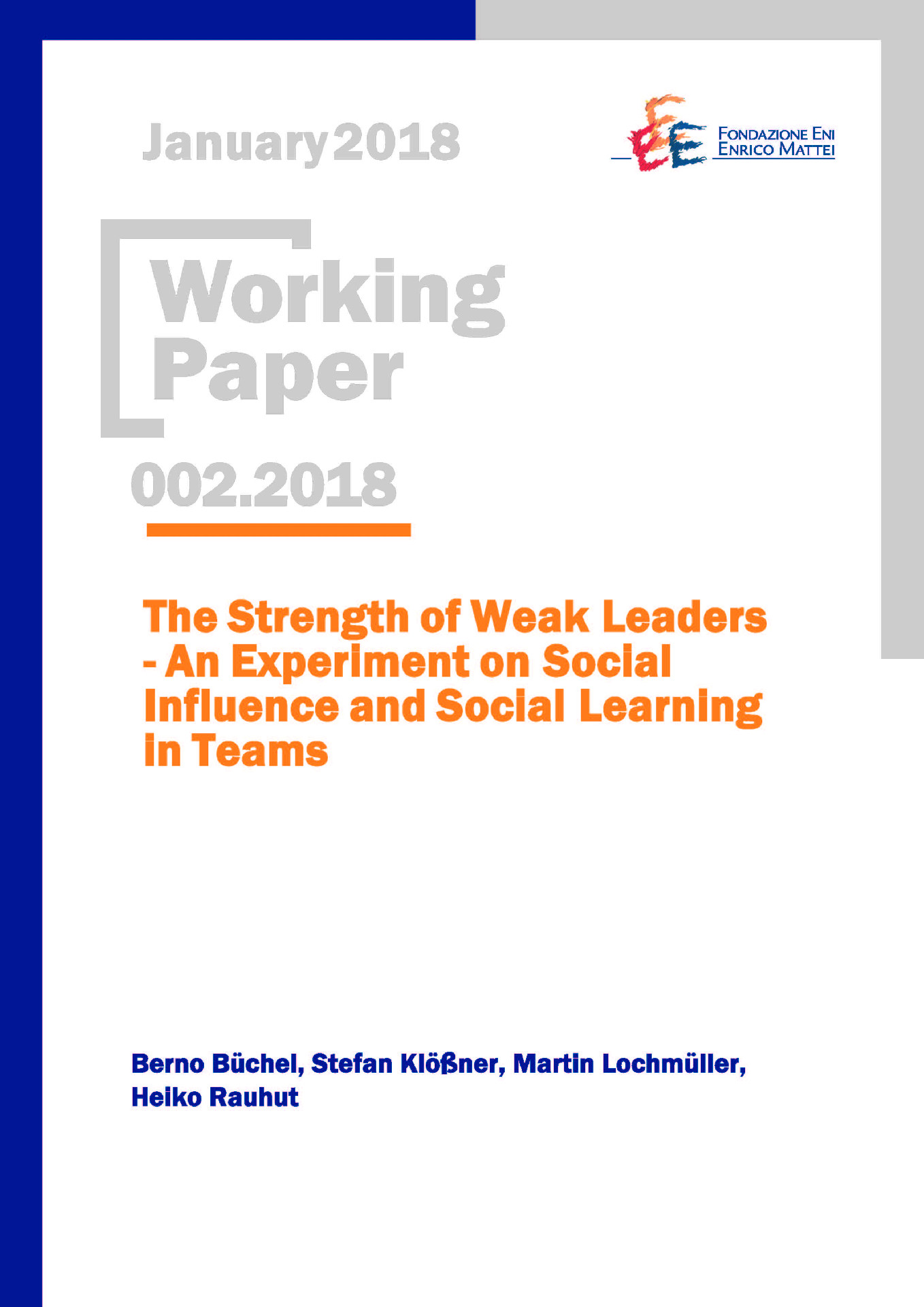The Strength of Weak Leaders – An Experiment on Social Influence and Social Learning in Teams

22.01.2018
D83, D85, C91
Social Networks, Social Influence, Confidence, Overconfidence, Bayesian Updating, Naïve Learning, Sortition, Wisdom of Crowds
Economic Theory and Applications
Matteo Manera
We investigate how the selection process of a leader affects team performance with respect to social learning. We use a lab experiment in which an incentivized guessing task is repeated in a star network with the leader at the center. Leader selection is either based on competence, on self-confidence, or made at random. Teams with random leaders do not underperform compared to competent leaders, and they even outperform teams whose leader is selected based on self-confidence. The reason is that random leaders are better able to use the knowledge within the team. We can show that it is the declaration of the selection procedure which makes non-random leaders overly influential. We set up a horse race between several rational and naïve models of social learning to investigate the micro-level mechanisms. We find that overconfidence and conservatism contribute to the fact that overly influential leaders mislead their team.
***
Suggested citation: Büchel, B., S. Klößner, M. Lochmüller, H. Rauhut, (2018), ‘The Strength of Weak Leaders – An Experiment on Social Influence and Social Learning in Teams’, Nota di Lavoro 2.2018, Milano, Italy: Fondazione Eni Enrico Mattei
